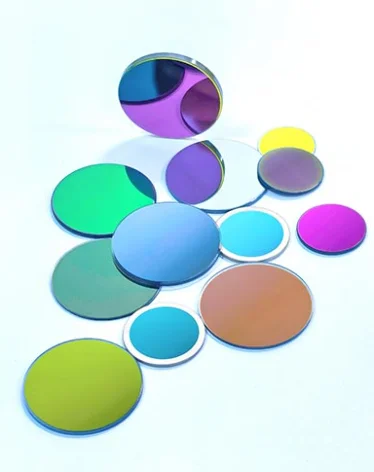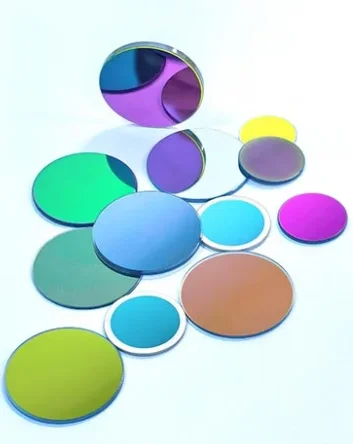Infrared (IR) cameras and IR lenses are now widely used across many industries. You will see them in home security, in hospital diagnostic rooms, and even in large factories. These devices are valued because they can “see” heat patterns that the human eye cannot detect. Yet, there is a question that keeps coming back: are these devices safe if they are used without an IR filter lens?
It is true that IR cameras and lenses send and capture infrared radiation. This radiation is invisible, but that does not mean it is harmless. If people use them for a long time without the right protection, the body—especially the skin and eyes—may be at risk. That is why the role of an IR filter lens becomes so important.
One company, Bodian, is often mentioned when talking about safety filters. Bodian has been producing optical filters for decades, and its models like Infrared narrow bandpass filter 10485 and Infrared anti reflection filter 8000-14000 are trusted in industries where safety is not a side issue but a top priority. Their work supports areas such as aerospace, military defense, and advanced healthcare.
Risks of IR Cameras and Lenses Without an IR Filter Lens
Hidden Nature of IR Radiation
Infrared light is invisible to our eyes, so people often forget that it is still a form of energy. Unlike a bright lamp, it will not cause you to squint or blink. That makes it tricky, because harm can be happening silently while you feel nothing at first.
When someone uses an IR camera for long inspections—for example, checking electrical circuits or medical scans—radiation exposure adds up slowly. Over time, this accumulation can lead to noticeable health problems.
Harmful Radiation Exposure
Studies have found that strong or long exposure to IR waves can harm the skin and the eyes. The radiation can go deeper than normal light. In the skin, this may mean burns or premature aging. In the eyes, it can cause tiredness, headaches, or even permanent harm to the retina.
Think of how you sometimes get sunburn without realizing it until hours later. IR exposure works in a similar hidden way, except it involves heat energy. That is why a filter lens that blocks unsafe wavelengths is not a luxury—it is a necessity.
Extra Heat on the Eyes
IR radiation is basically heat in wave form. When IR lenses are used without a filter, they pass on a lot of this heat directly to the eyes. Our eyes are very sensitive to heat. Long exposure can cause irritation, dryness, or in worse cases, damage to the thin inner layers.
For example, imagine a security guard watching through an IR system night after night. Without protection, the heat exposure builds up and could leave lasting problems. By using a filter like Infrared narrow bandpass filter 10485, which narrows the allowed spectrum, the guard’s eyes are spared from constant heating.
Sensitive Environments
In certain places, the risks are even greater. Hospitals rely on accurate IR scans for diagnostics. If radiation levels are uncontrolled, the operator might feel strain and the readings may be less reliable. In defense or aerospace, soldiers and pilots need to stay sharp. Fatigue from unfiltered IR can reduce their focus and performance.
For these cases, filters such as Infrared anti reflection filter 8000-14000 offer dependable protection while still keeping the image clear and precise.
How IR Filter Lenses Protect Users
Blocking the Dangerous Wavelengths
Infrared radiation covers a wide range. Some parts are mild, but others can be damaging. An IR filter lens is designed to cut out the risky portions while letting safe and useful parts pass through.
The Infrared narrow bandpass filter 10485 filter, for example, works as a narrowband filter. It carefully blocks harmful wavelengths while keeping the signal needed for tasks like gas detection intact. This balance—safety and clarity—is why engineers and doctors rely on it.

Reducing Heat Exposure
Since IR is heat, cutting down its flow means less stress on skin and eyes. A filter either absorbs or reflects much of this heat, so the user does not feel constant warmth on the face.
Think about a worker in aerospace maintenance who has to monitor engines with IR tools for hours. With a filter like Infrared anti reflection filter 8000-14000, the job can be done without worrying about overheating the eyes.
Everyday Industry Examples
Healthcare: Doctors using IR thermography protect themselves from stray radiation that otherwise could tire their eyes after many patients.
Military and Defense: Soldiers on night missions rely on filters to keep their focus sharp without suffering from eye strain.
Industrial Monitoring: Engineers inspecting pipelines or machinery use filters to prevent long-term harm from daily exposure.
In all of these cases, safety and comfort mean better work quality too.
Why Bodian’s IR Filter Lenses Are a Strong Choice
Quality for Real Protection
Bodian’s filters are built with high standards. The Infrared narrow bandpass filter 10485 gives precise narrowband protection, while the Infrared anti reflection filter 8000-14000 covers broader ranges. Both are made for sensitive environments where even small mistakes are costly.

Custom Solutions
Not every job uses the same IR range. Bodian provides custom designs for industries that need special wavelength blocking. For instance, a hospital lab may need one set of filters, while an aerospace contractor needs another. This flexibility makes Bodian stand out.
Depth of Expertise
Bodian has years of focus on optical filters. This long history means their team understands not just how to make a filter, but how it behaves in real-world use. That experience gives confidence to clients who cannot afford failures.
What Makes Bodian Different From Others
Advanced Coating Technology
The strength of an optical filter depends on how thin-film coatings are layered. Bodian uses precise coating methods so that each filter blocks the right bands without losing clarity. The science of thin-film design—like quarter-wave stacks discussed in optical engineering textbooks—is applied directly to their products.
Fair Pricing
High performance does not always mean extreme cost. Bodian balances quality with practical pricing, giving industries reliable filters that also fit budgets. This balance makes adoption easier worldwide.
Customer Support
Another part often overlooked is service. Bodian offers help from choosing the correct filter to advice on installation. Many clients say this guidance saves them time and prevents mistakes.
A Small Human Note
When people hear about radiation, they sometimes imagine only big threats like nuclear energy. IR sounds less dramatic. Yet in practice, repeated exposure can be a silent problem. It is like leaving a kettle on low heat—no smoke, but eventually something burns.
A technician who spends eight hours a day in front of an IR system may not notice harm right away. But months later, eye fatigue or headaches become real. That is why safety should not be delayed until after symptoms appear.
FAQ
Q1: How do IR filter lenses protect users from harmful radiation?
A:They block unsafe wavelengths and cut down heat, keeping eyes and skin safe.
Q2: Are IR cameras and IR lenses harmful without a filter?
A:Yes. Long exposure to unfiltered IR can damage skin and eyes.
Q3: Why should I choose Bodian’s IR filter lenses?
A:Because Bodian combines high-quality products, custom solutions, and years of experience in infrared technology.















